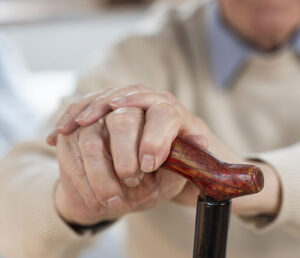When I was 11 years old in 1967, my dad decided that it was time for me to learn some responsibility and work ethic. So, I become a paper boy for the Peoria Journal Star in the small town of Washburn, Illinois that I grew up in.
Little did I know that 50 years later, I would be looking back at that experience and recognizing that it was the best job I could ever hope to have for teaching me the broad range of skills necessary for operating a successful business.
Of course there were the obvious things like having to get up early and deliver papers with your bike in all kinds of weather, but I’m talking about some things most people never knew and other things that Peoria Journal Star (“PJS”) wouldn’t even think about asking its paper boys to do today.
Logistics
I can’t imagine that there are very many paper “boys” today. I think almost all the delivery routes are handled by adults driving cars – and I doubt if anybody, still makes his or her deliveries on a bicycle. This has eliminated the “gauntlets” that every paper boy had on his route. My favorite was the German shepherd that would sit on the front porch of his home waiting for me to peddle by on my bike. The dog’s home was located in a “dip” on the street which allowed me to gain as much speed as I could going downhill as I approached and then as the dog leapt barking from the porch I would put my feet on the handle bars of my bike so he couldn’t grasp my pant legs with his snapping teeth. Then I just prayed that I had carried enough speed to get me far enough up the incline on the opposite side so that I wouldn’t “stall” and have to start peddling again before ol’ Rover broke off the attack. Granted, as I look back at it now, the poor dog may have been just a little upset by the fact that my bike made a sound that I swore at the time was a dead ringer for a motorcycle (a Tommy Agee rookie baseball card clothes pinned to my bike so that it would be struck by the spokes on my back wheel as it turned), but who knows?
Accounts Payable
If I were ever to have collected the 70 cents per week charged to each of my 42 customers, I would have gross collections of $29.40. PJS expected you to send them $21 per week to cover their base costs for the paper (my “nut”). I would give my mom the $21 and she would write a check which I would mail to PJS. The $8.40 I could collect above and beyond that was my profit. I have to admit that in those days with no car and no girlfriend yet, a potential $8.40 payout (equating to $84 per week today) was pretty attractive.
However, in reality if I ended the week with a few bucks in my money pouch, I was lucky.
Usually I had to beat the bushes to just make the $21 nut I “owed” PJS (kind of like the proverbial “company store”). If I didn’t collect the $21, I had to withdraw the difference from my passbook account at the bank.
Collection Of Account Receivables
You also had a completely different business dynamic in those days. Today, everybody is billed by the PJS for their paper and you either mail in payment (or electronically pay it or arrange for it be automatically deducted from your account) or they stop your delivery. However in those days the paper boy was charged with the responsibility of actually going door to door to collect payment from the customers. That had to be Saturday and Sunday because it took you the better part of day to do it and your best chance at catching the customer at home was when they were off work for the weekend. Of course, it was a virtual impossibility to collect all the money you were owed by all of your customers for a number of reasons, some obvious like your customer not being home at the time, and others, well let’s just say, for a myriad of reasons only the imagination can fathom – just like in real business!
If you recall when your PJS paper boy came to door, he was armed with a ring bound leather note book provided to him by PJS which held a card for each customer with the sacred perforated colored “tickets” that were attached to the card and were torn off and given to the customer as a receipt for payment for each week of deliveries.
One of the more well to do citizens in town was on my route. We will call him Harold. I had been warned about Harold when I took over the route from the boy who had it before me. Harold was chronically a couple of months behind. When I would surprise him at the door, he would always ask if I had change for a $20 (which was the equivalent of $200 in those days) because that is all Harold claimed to have. Of course when I confessed to only having $12 and some change, I would suggest that he could pay the money he owed me and perhaps pre-pay for the next couple of months. “I’ve got your tickets right here.” That seemed to amuse Harold who would snort at me, tell me he would catch me next week and slam the door in my face. I later came to understand that even this was a lesson in the business. Harold was demonstrating to me that he didn’t get to his station in life by prepaying his debts. Just the opposite. One makes money by holding onto one’s money as long as possible. Let your creditors be your bank, especially those who are interest free.
One Saturday morning it was raining cats and dogs and my dad offered to drive me around my route to collect. I only remember this happening the single time, but I’m sure it happened more often than that. Anyway, dad saw me come trudging back down the drive way from this Harold’s house towards the car and asked me what happened. When I told him about Harold’s “change for a $20″ excuse and how it had happened on numerous times before, much to my great surprise my dad reached into his billfold then looks at me with a sad look on his face and says, “I wish I had change for a $20, so you could march up there and tell that son of a bitch you got the change, but I don’t.” As the years go by this moment in time becomes more and more precious to me because of the instantaneous and visceral empathy my dad felt for me that soggy weekend morning and the anger he projected towards what then became our mutual nemeses. Had dad’s billfold contained the change for Harold’s $20, no doubt this incident probably would have long ago faded away into the mist of time. I would find out when I was older that dad’s dislike for Harold also resulted by reason of things he and others in town had known about Harold that were much more nefarious than simply taking advantage of a paper boy.
Employee Relations
I was one of four paperboys that delivered for PJS in town. One morning we found PJS had attached a flyer to our paper stacks announcing that if we were to sign up two new customers in the next seven days, we would be able to scoop up as much money as we could from a pot of money. The picture on the flyer showed what looked like a pot of gold and a scoop that resembled one of those metal scoops with a handle you find in an ice machine at a motel. Sounded like a great idea. So, my best friend Jeff and I pounded the pavement afternoons after school and each of us came up with those two new customers. Weeks went by with no indication when the money grab would take place. Finally, after Jeff’s mother called the circulation guy, we got word that he would be swinging by town the following Tuesday afternoon. When we arrived, he had the trunk of his car open and proudly displayed a coffee can full of coins that looked like a can of cheap mixed nuts. Very few quarters (Brazilian nuts), a few more dimes (cashews), yet more nickels (almonds), but the vast majority of coins being pennies (peanuts). Then he produces the small red plastic scoop that was probably the same one that came sealed inside the same coffee can now containing the coins, hands it to Jeff and says he can keep whatever he can get scoop with a single scoop. Jeff worked that scoop around the can of coins with dexterity of a surgeon trying to corral as many quarters as he could, but even then all he could get in the small scoop was about 62 cents. The hilarity of the promotion must have worked on the guy’s conscious as he announced he was going to change the rules and magnanimously told us we could each have two scoops. Needless to say that was the last new customer promotion we ever paid any attention to.
Fool me once, shame on you… .
Let’s face it, we were child labor. PJS made its real money selling space in the paper to its advertisers and secondarily on selling the paper to its customers. There were several times that Jeff and I had a customer who would fall a couple of months behind in paying for their paper and we would call the circulation guy and ask that we be allowed to stop deliveries or that PJS reduce the $21 weekly nut we had to come up with. We were always told to keep delivering and that he would call the customer and get us paid. We never heard from him again on the subject and never got paid. Of course PJS didn’t want us to stop deliveries. Their advertisers paid PJS based upon their circulation numbers. The charge the customer paid for the paper was secondary and, after all, the paper boy still had to send PJS his $21 weekly nut which included a paper for that deadbeat customer. So, the only ones losing money when customers didn’t pay were the paperboys [See the first principle of Harold’s business model, above]. When I eventually turned the route over to the new guy, I explained the sad truth to him just like it was explained to me when I first took over the route – There will be customers that will never come to the door, you will never get paid, but you have to keep delivering the paper anyway cause PJS won’t let you stop.
Customer Relations
I’m sure many people never appreciated a benefit to the community that the paper boys fulfilled. For many, many residents in my small town, especially the elderly, the widowed and shut-ins, the paper which was faithfully delivered each day (or just on weekends or on Sundays if you preferred) was the main link to life beyond what could be observed from one’s window or yard.
That job also forced me to learn how to respectfully interact with adults who were lonely or confused. Like most young boys, I wanted to just deliver the paper and keep going so I could finish my route as quickly as possible and get home to get ready for school. When the door would open as I approached the porch, my heart would sink as I knew a perfunctory conversation was going to take place. Until I was much older I never appreciated that this was somebody’s mother or grandmother who perhaps lived far away from her children and grandchildren, who had been waiting by the window anticipating a brief conversation with a young face which might be the only one-on-one human contact that customer enjoyed that day or even throughout the week.
I also often encountered the sweet elderly lady who today we would recognize as displaying the early onset of dementia who would week after week protest that she already paid me the 70 cents for last week’s papers or had prepaid for this week’s papers, but, alas, could not produce the ticket for the week in question. This customer was often someone who had known me since I was born, may have attended the same church as my family or who may even have been part of the intimate group which included my grandmother who would get together each Saturday evening to watch the Lawrence Welk Show in color. Yet, business was business. Without saying a word, I would respectfully show her the ticket for the week or weeks in question still in my ticket book knowing what would happen next. This very proud lady would first fetch, then fumble through her coin purse, her eyes welling with tears, to pay me money that she truthfully and sincerely had memories of already paying and wanting to believe that I had simply not given her the ticket, while at the same time wrestling with the possibility that she had not previously paid me and this was yet another those embarrassing and confusing moments that seemed to be occurring more and more frequently lately.
The Competition
The Bloomington Pantagraph also had a circulation in Washburn albeit half as many papers. So, it only took two paperboys, the Beschorner brothers, to handle those delivers. They had delivered for the Pantagraph for many years and were a couple of years older than the rest of us, which made us wonder why they were still in the business. That mystery was quickly solved when we found out that the Pantagraph did things a little differently than PJS. First of all, their paper boys could deliver their routes in the afternoon after school. No getting up at the crack of dawn for these guys. However, the most amazing thing about the Pantagraph was that it was years ahead of its time in that it required the customers to send their payments directly to the Pantagraph office instead of forcing its paper boys out to do its collecting. The Beschorner boys simply received a weekly check in the mail for 100% of their pay (No Way!) which incidentally was also a greater per paper profit that what PJS paid us. Not only that, but if any customer didn’t pay, they would not be receiving a paper very much longer. You can bet that whenever I saw the Beschorner boys I would remind them that when they were ready to “retire”, I would really appreciate it if they were to put in a good word for me. Unfortunately, all the other PJS paper boys were having the same conversation with them. Then, again, just think of all the business lessons the poor Beschorner brothers missed out on by having delivered the Pantagraph.
Quality Control
I used to laugh (and still do) when I watched TV and saw these paper boys riding their bikes down the street with a cloth bag full of skinny little neatly folded papers over one shoulder throwing them from the street or sidewalk to anywhere close to the front door. Not in my world. If the customer didn’t have an actual paper box in which the paper was to be put, you had to open the front door, carefully position, and not throw, the paper between the screen/storm door and the front door and close it tightly. You could be sure that any deviation from that protocol would result in a call from the PJS distribution guy for your area calling you that evening to let you know that Mrs. Smith complained that you failed to shut her front door and as a result her paper blew away and to leave you with the warning, “Don’t let it happen again or we will have charge you for it.” Such an event also required that when delivering the paper the next morning you knocked on Mrs. Smith’s door, gave her my family’s paper from the day before which had been neatly refolded and apologized for the inconvenience. Although I had my doubts as to the veracity of Mrs. Smith’s story, I was learning that in business the customer is always right.
Advertising
Every morning the PJS delivery truck would drop off our papers with each paperboy getting his own specifically numbered stack (mine was 220) which was tightly bound with wire. On weekdays and Saturday I simply cut the wire with the wire cutters my dad had bought for me and stuff the papers in the wire baskets located on both sides of the back wheel of my bike. However on Sundays, we would get two stacks. One being the paper and the other the advertisement flyers which had to be manually inserted into the paper before it could be delivered. Jeff and I would take our stacks across the main drag to the Laundromat where we could use the folding tables in a warm environment to shuffle the ads into the papers then try to stuff all of these already oversized Sunday papers into our bike baskets.
Being the fledgling businessmen that we were, one Sunday morning in the Laundromat Jeff and I began discussing ways in which we could become more efficient in performing our jobs. I think it was me who suggested, and Jeff wholeheartedly agreed, that these advertisements were a waste of time and effort. After all, we just threw them away at our house as soon as the paper came anyway. If we were to just toss them in the waste can at the Laundromat instead of shuffling them into the Sunday papers we not only would save time and space in our bike baskets, but our customers would probably thank us for not burdening them with all this junk. I think it was only an hour after finishing my route that I got a call from the circulation guy. PJS’s phones were probably lighting up like a Christmas tree with people calling and asking why they had not gotten their advertisement flyers that morning. When he asked if I had inserted the advertisements, I proudly informed him of the executive decision that both Jeff and I had made out of respect for our customers who didn’t want all that junk anyway. The voice on the other end suddenly went up three octaves, “Yes they do!” He shouted. The poor man was probably on the verge of a stroke. Fortunately the advertisements were still in the waste can at the Laundromat and Jeff and I fixed the problem by making two separate deliveries on our routes that day. I had learned that indeed there must be some unfortunate souls who truly liked getting those advertisements, but it never really made any sense to me at the time.
Conclusion
I look back at some of my experiences as a paperboy and laugh, but it never fails to amaze me how so many of the fundamental business principles that I utilized every day while representing and counseling my clients for the past 35 years, were not initially introduced to me in college or law school, but during my “first job”.




